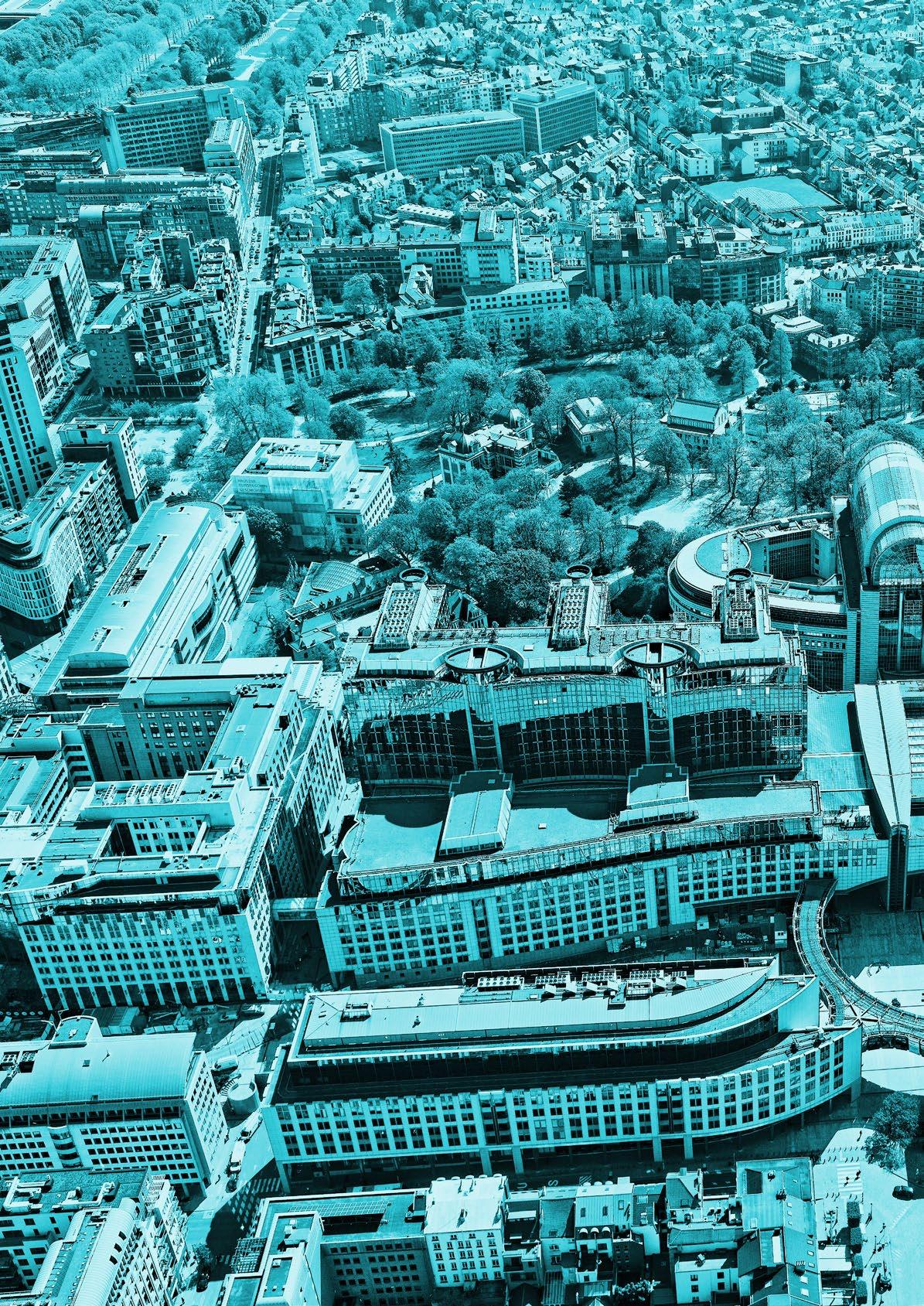liberal





Editorial by Jacob Moroza-Rasmussen 03 Voices from Ukraine
From our Capitals: Reykjavik, Iceland
Citizen perspective on Europe’s economic outlook with a message from Dita Charanzová
07
09
Special interview with Werner Hoyer 12
10 14
Liberals act to defend our values 16
Our member parties have the floor: Progressive Slovakia & Liberal Movement
Interview with AIM Working Group coordinator Wiebke Rueterjans
04 18
Liberal women shine at UNGA 19 Movers and Shakers
The Alliance of Liberals and Democrats for Europe (ALDE) Party is the party representing liberal democrat values across Europe. With our member parties throughout Europe, we are translating the principle of freedom into politics, economics and across all other areas of our societies. The ALDE Party provides an increasingly vital link between citizens and the EU institutions. The ALDE Party is made up of more than seventy member parties and many individual members from across Europe.
Liberal Bulletin is a publication of the ALDE Party. It is published twice a year.
Alliance of Liberals and Democrats for Europe Party, EUPP
Editors: Clara Puig de Torres-Solanot, Anna Wangen
Editor-in-Chief: Iiris André
Publisher: Jacob Moroza-Rasmussen
Layout: Nadège Van Hoorde
With the financial support of the European Parliament. The sole liability rests with the author. The European Parliament is not responsible for any use that may be made of the information contained therein.
Dear liberal friends,
Another challenging year is soon coming to its end. Hardly were we out of the COVID-19 pandemic when Russia started an unprovoked war against Ukraine that has cost the lives of thousands of innocent civilians. At the time of writing this editorial, there are several war crimes under investigation by the international community, and I’m afraid we haven’t seen the worst of it yet.
Throughout this year, Europe’s liberals have been fighting hard for democracy, for justice and for Ukraine. In this Liberal Bulletin, we have given the opportunity for our Ukrainian member parties to share their messages with our readership. They might not be messages of hope, but they underline the gravity of the situation and the need for the unwavering support from the West. We must not forget that Ukraine’s fight is Europe’s fight!
Meanwhile, Europe’s households are struggling with the increasing cost of living and energy prices. Here at the ALDE Party, we are tuned in to the opinions on the ground through our survey project. In the pages of this publication, you can find out more about what Europeans think and feel about their current economic outlook.
And while the next European elections might still seem far away, we are already getting started with the campaign planning. It is an often-used cliché that these elections will be crucial for Europe’s liberals, with so many challenging and unexpected issues having dominated the European agenda these past years.
This time we will also face the unprecedented challenge posed by the large segment of voters who are very unhappy with the direction of their lives and want to change this by voting for someone new, who promises they can fundamentally change how things are. But, in many ways, we have the unique opportunity to make the liberal project a project of and for the people. But if we fail, Europe may be hit with a wave of nationalist populism which will be bigger than what we saw in 2016.
We certainly have a lot of work to do ahead of 2024, but we are ready and more united than ever.
Despite the hardships of this year, I wish you all a happy holiday season.
Jacob Moroza-Rasmussen ALDE Party Secretary General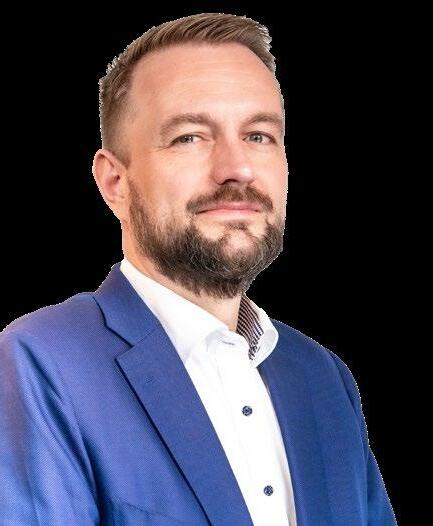
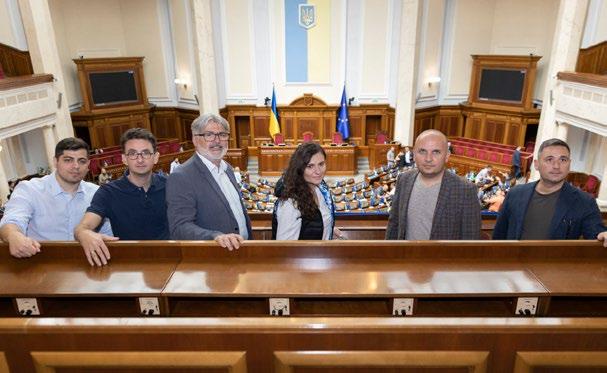
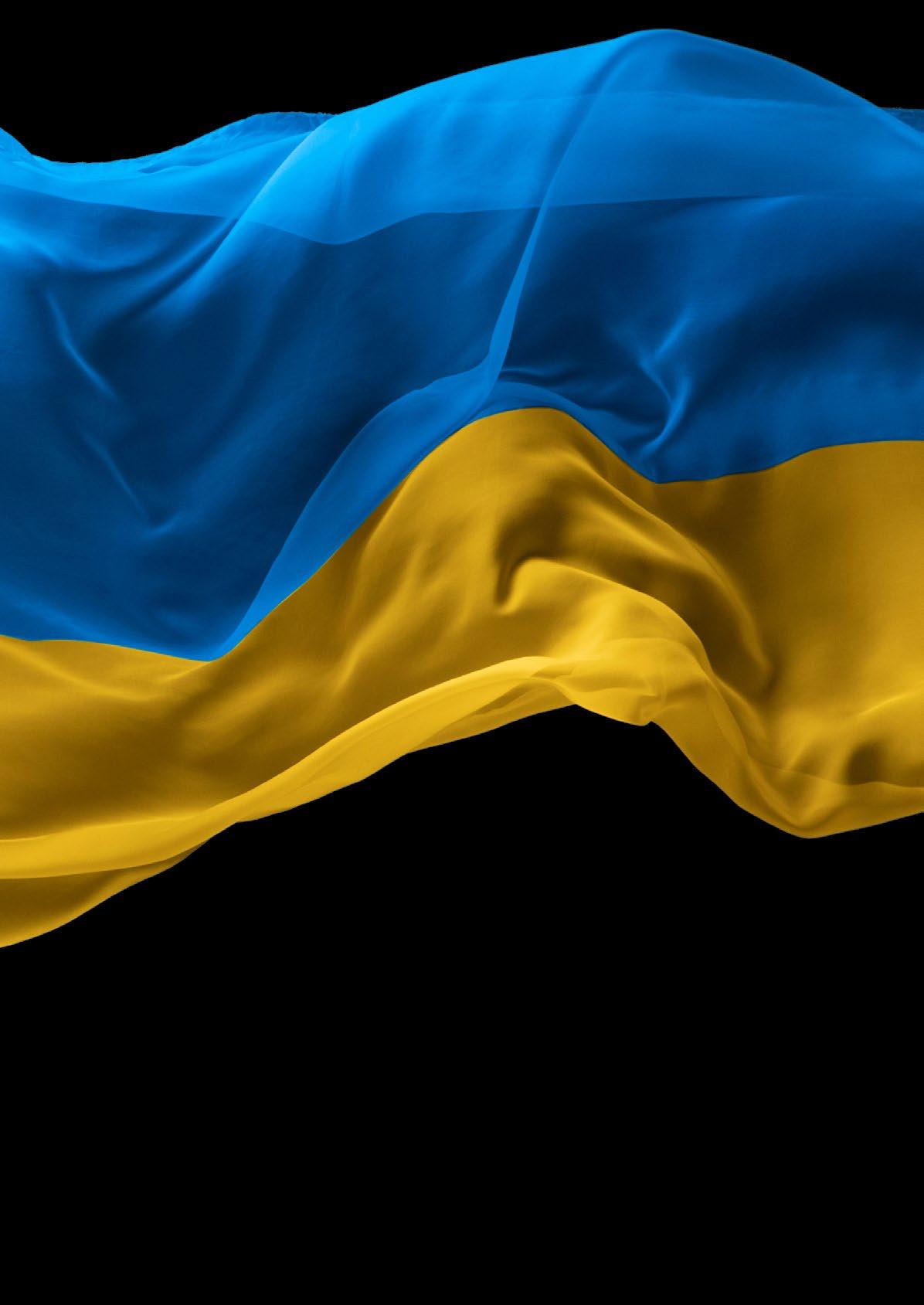
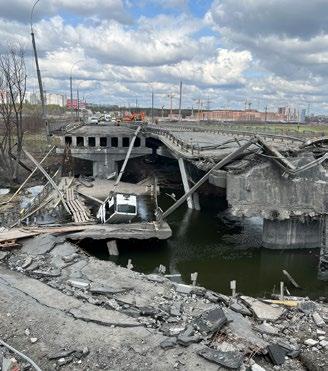
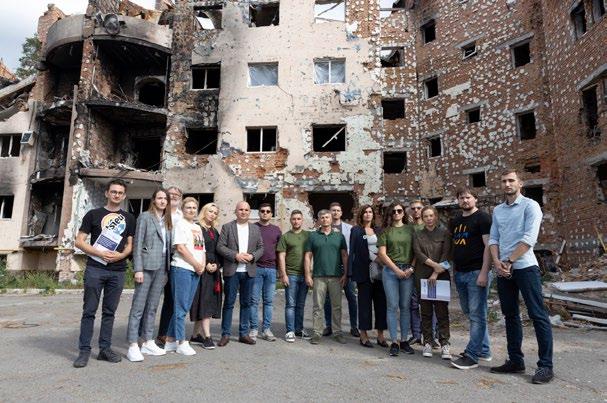
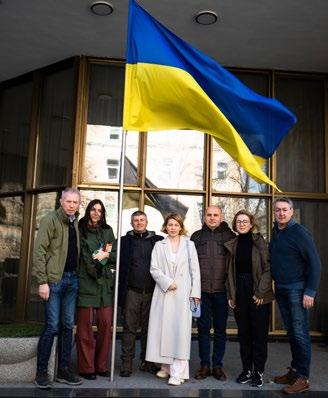
At the time of printing this Liberal Bulletin, the Russian invasion of Ukraine has lasted close to ten months. The atrocities against the people of Ukraine in cities like Bucha, Izyum and Mariupol are just some examples of the horrors faced by the innocent.
We invited all of our member parties* in Ukraine to provide us with a short message which we publish here. They remind us of the importance of continuing the fight for justice, for freedom, for democracy. We are united and we stand with Ukraine! For more on our support to Ukraine, head to aldeparty.eu/standwithukraine
Ukraine has been serving as a shield for Europe for the last eight years. At the time of writing this, our armed forces are fighting for democracy, sacrificing their lives in the name of a free future for us all.
Meanwhile, the Kremlin is using huge amounts of money to spread disinformation and fake news across Europe and the world. This I call ‘Russian propaganda cancer’. Putin’s regime has cycled through a torrent of lies to explain why it is waging the war against a sovereign, democratic country. Disinformation in the wartime is as old as war itself, but this senseless war is taking place in the age of social media, online diplomacy, and television.
Russia’s propaganda is aimed at causing panic not only among Ukrainians but also in the European Union and other Western nations. This is why, since the beginning of war, 24 February 2022, I have been tirelessly engaged in information and negotiation activities to share what is truly happening in our country.
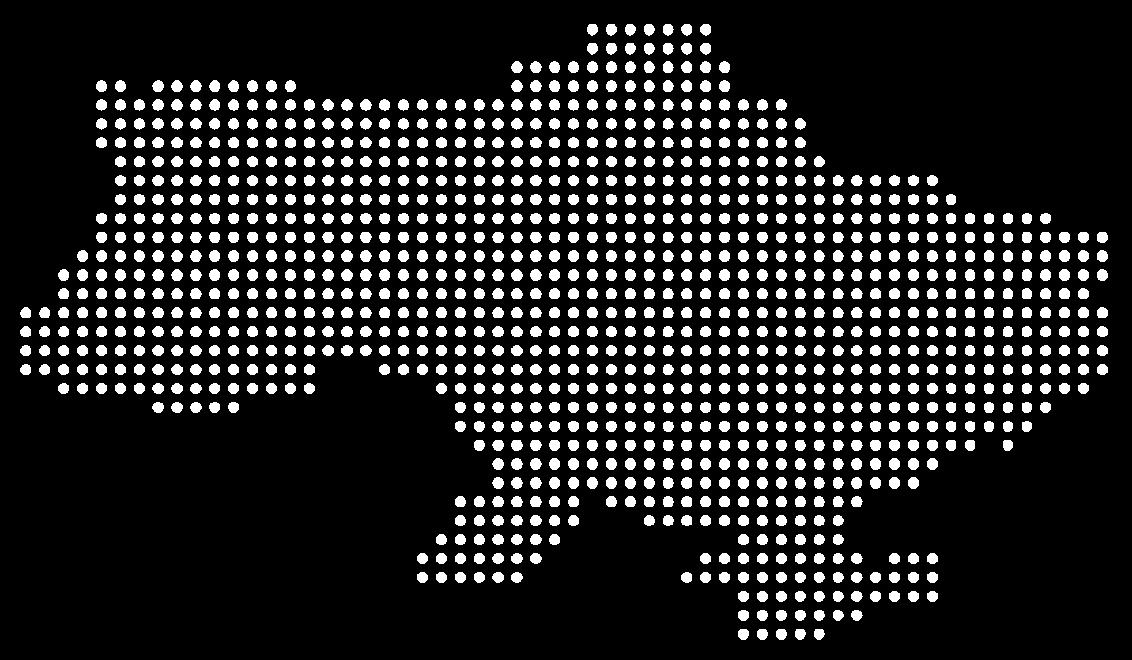
It is a great honour for me to be an information warrior and communicate with the international audience and politicians. My goal is to explain that citizens of democratic countries should not have to pay for Russia’s atrocities. The only solution for the recovery of our country is to confiscate Russian assets.

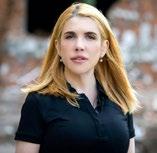
Europeans should be constantly reminded that this is not a conflict, not a crisis, but a full-scale invasion, a cruel war. Yet, this is not a war between Russia and Ukraine. It is Russia’s war against the West and its values, against everything the free world stands for.
Kira Rudik MP, party leader of Golos & ALDE Party Vice President@kiraincongress
As a member of the ALDE Party since June this year, it is our firm belief that our party will be a strength to the European liberal family, just as Ukraine will be a strength to the European Union. Together we can always achieve more.
We have been able to introduce the most consistent, systematic and radical liberal reforms since the independence of Ukraine, but implementing them has been interrupted by the full-scale invasion of Russia.
However, even at such a difficult time in our country’s history, we continue our fight to protect our land, freedom and independence. We are helping the military and working on all fronts, keeping in mind the European future ahead for us and Ukraine.
Currently, a large part of our efforts is directed to reconstruction and recovery. Our priorities include, among others, strengthening security and defence; restoring and modernising social infrastructure; attracting investments; becoming energy independent and improving the business environment.
International support and cooperation are also very important to rebuilding Ukraine. Several European countries have already declared their readiness to participate in the reconstruction of specific regions. For example, Finland focuses on the Chernihiv region, Poland on the Kharkiv region and the United Kingdom on the Kyiv region. Portugal intends to help reconstruct schools and kindergartens, and Norway will focus on our energy infrastructure. Moreover, the first project is already in progress, with Estonia rebuilding a kindergarten in the city of Ovruch.
We hope countries will move from intentions to concrete actions, despite the continued battles. Ukraine needs the European community as much as it needs Ukraine. We are the defenders of freedom and democracy for all our continent.

Olena Shuliak MP, party leader of the Servant of the People Political Party
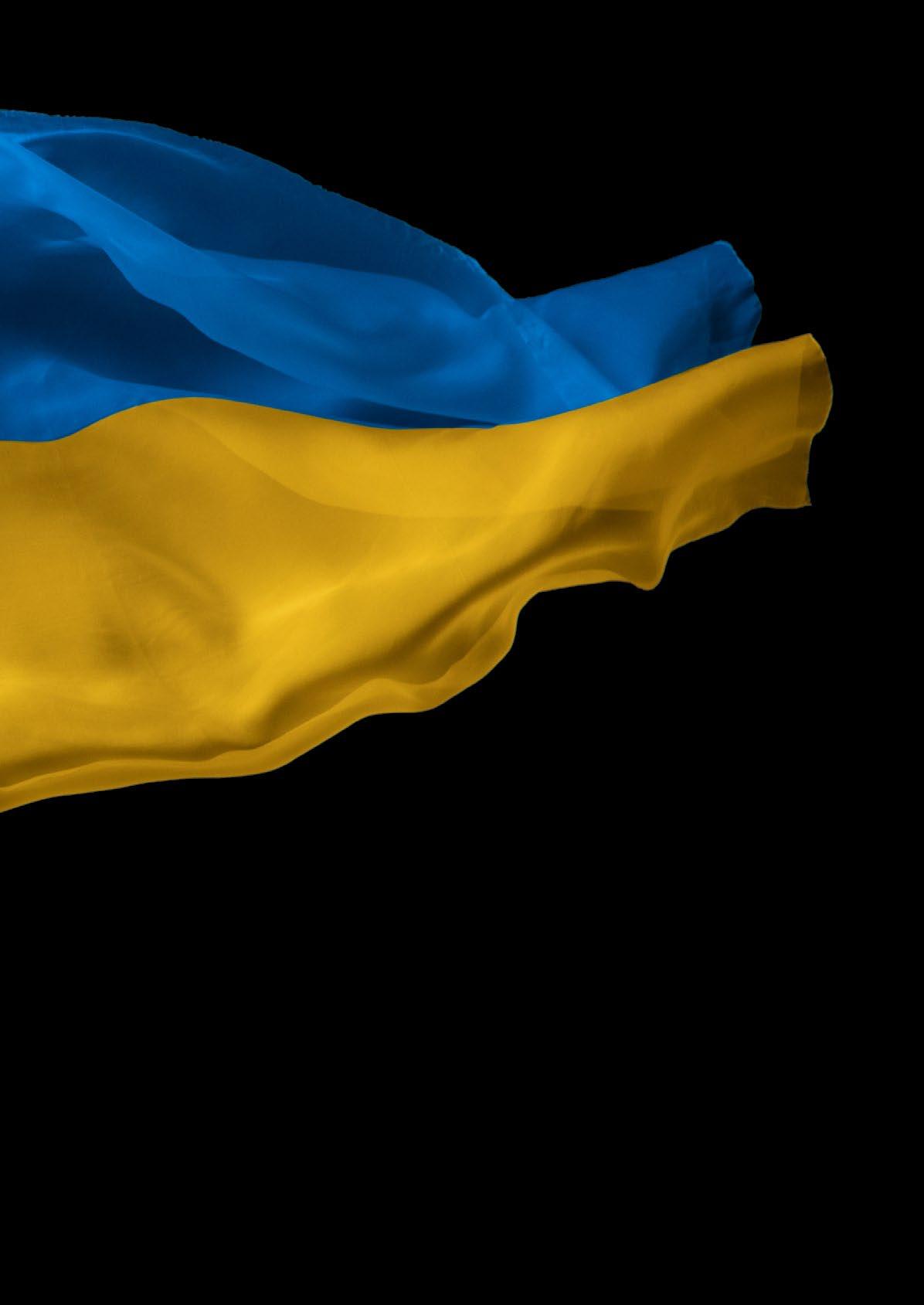
The most precious support to our country at the moment is the supply of modern heavy, high-precision weapons and small arms, which give the Ukrainian armed forces an advantage on the battlefield.
My fellow party members and I have experienced the importance of these deliveries first hand. The weapons provided by the international community help save lives on the frontlines, deliver accurate blows to the enemy and assist in freeing occupied territories.
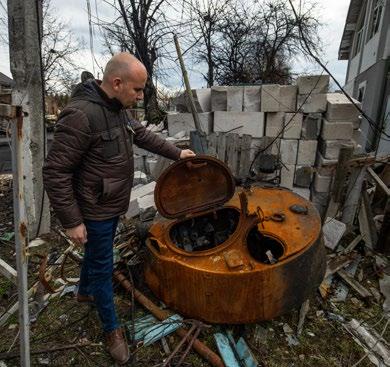
A further contributing factor to our continued success is the shelter that the European Union is providing to Ukrainian women and children. The men in arms know that their families are safe, which helps them to fully focus on defeating the enemy. Last but not least, the support provided in the form of logistics and other materials, the purchase and delivery of military equipment and hardware, such as ammunition and medical supplies, has been vital.
I also want to thank the leaders and members of the ALDE Party, who have visited Kyiv on several occasions to show their support.
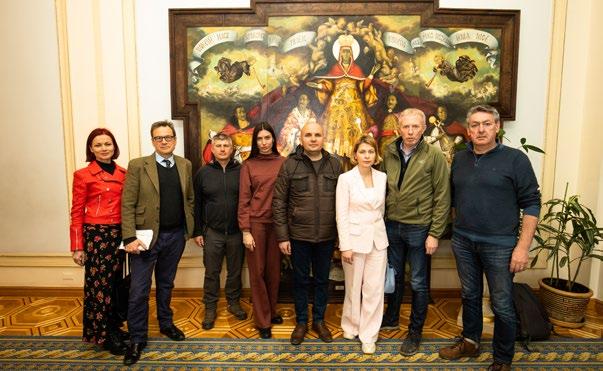

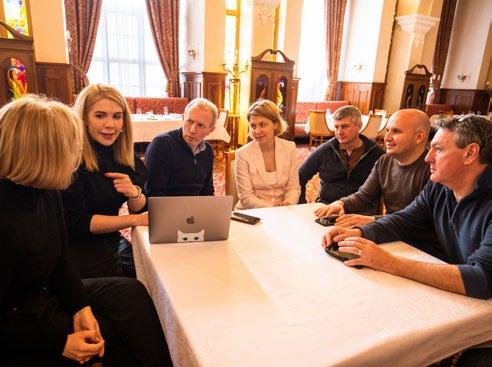
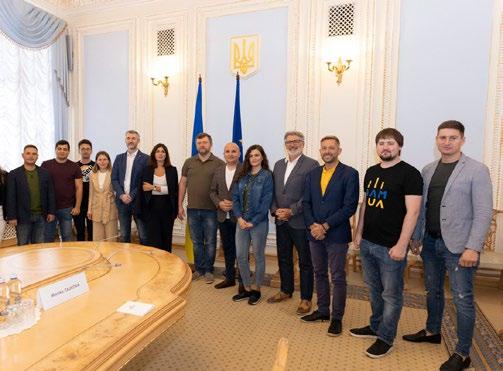
But, our fight is not over. For continued success, and the ultimate victory that results in a stable peace, we still need more weapons, the political support for an expedited accession of Ukraine to full NATO membership and a united international community willing to set and apply tough sanctions on Russia.
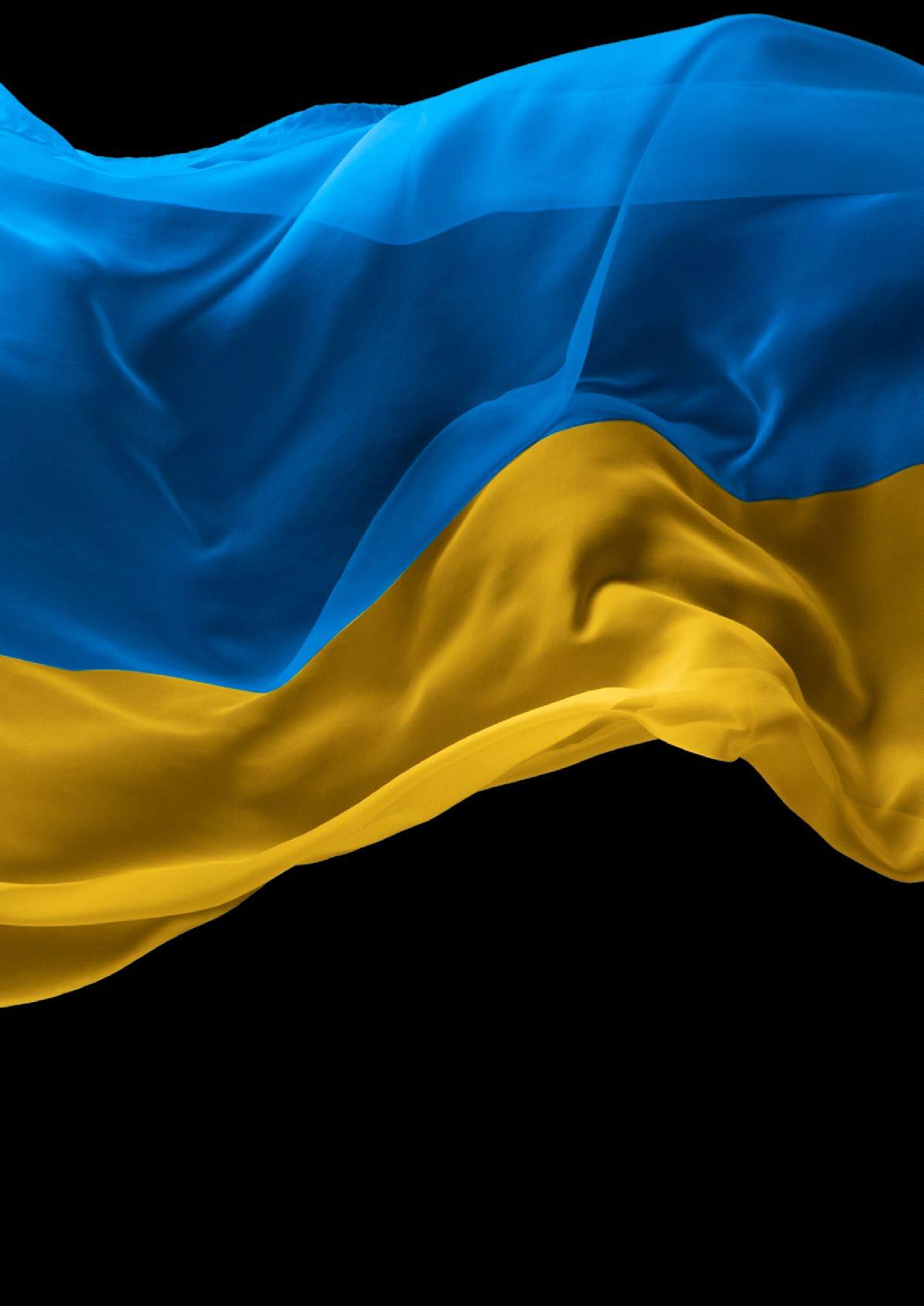
Don’t forget that our victory is your security.
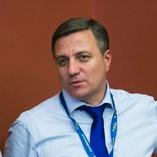 Mykola Katerynchuk, party leader of the European Party of Ukraine
Mykola Katerynchuk, party leader of the European Party of Ukraine
The European Investment Bank President Werner Hoyer didn’t hesitate when it came to providing quick support to Ukraine. From assisting European households struggling with high inflation to balancing the use of sustainable energy sources and fossil fuels, we spoke with President Hoyer at a critical time in Europe’s history.
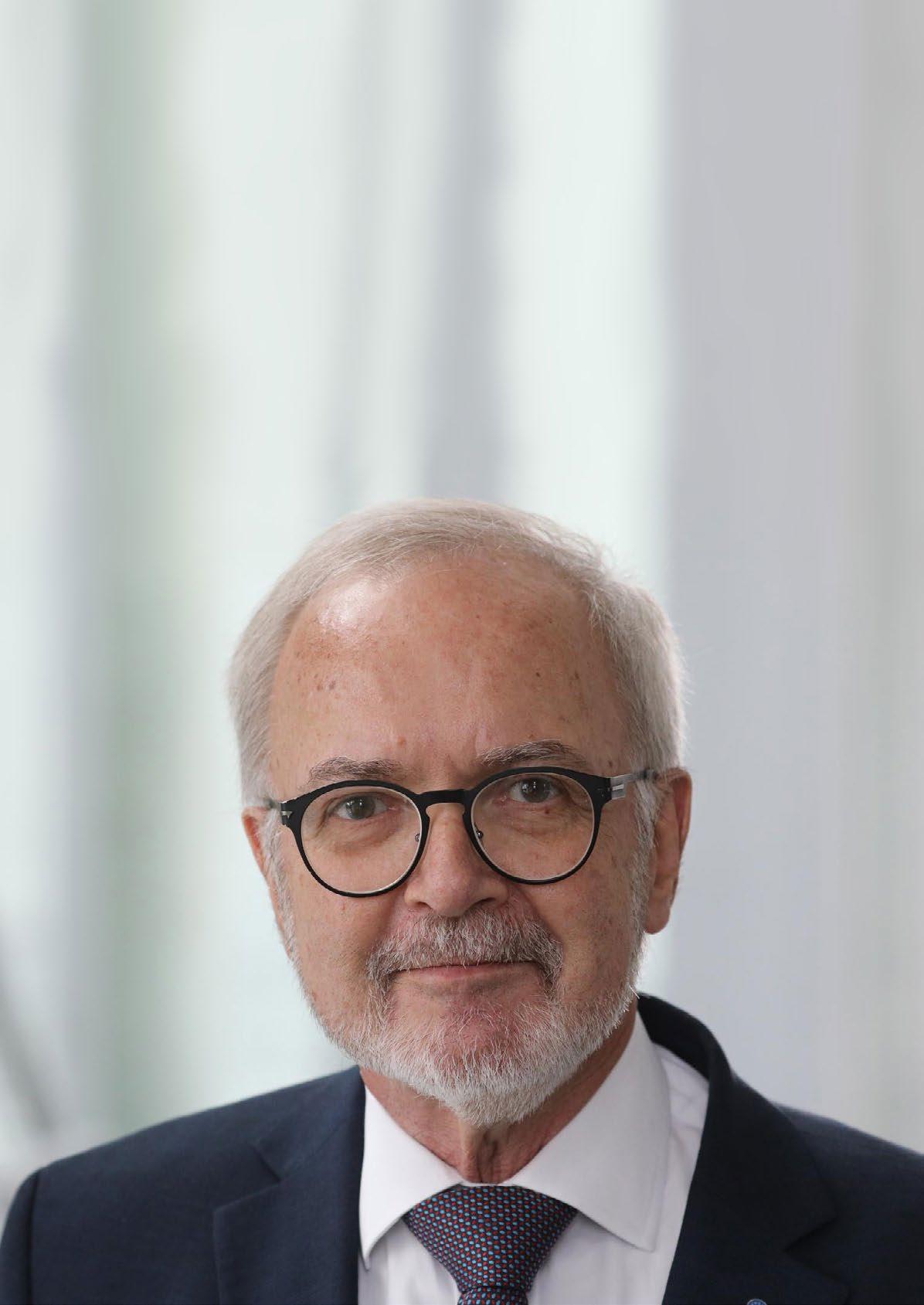
Since the beginning of the Ukraine war, you have pushed for the European Investment Bank to send funds to assist Ukrainians and their reconstruction efforts with unprecedented speed and flexibility. What led you to act so swiftly?
Russian fossil fuels. The answer lies in diversification of gas supply sources, as well as in accelerating the energy transition and investing more in energy efficiency, renewable energies and green innovation.
Russia’s invasion of Ukraine is the first full-scale military attack on a European country after decades of peace. As the EU bank, we didn’t hesitate to assist Ukraine as quickly as possible. Within days of the outbreak of war, we made available €668 million to support Ukraine to cover its most urgent liquidity needs. Moreover, our Board approved another €1.59 billion in July to repair the most essential damaged infrastructure and to resume critically important projects. This was only possible thanks to the strong support we received from the European Commission and EU Member States.
The European Investment Bank has been very active in Ukraine since 2007. We increased our activity considerably after the illegal annexation of Crimea by Russia in 2014. Back then, we immediately put our work in Russia on hold and instead focused on Ukraine. So, we have a long history working with Ukraine, and that’s why we could act swiftly when our help was urgently needed.
Many Europeans are worried about increasing energy prices and inflation. From your perspective, what steps should be taken to support those who struggle while avoiding another economic downturn?
The blame for the current energy crisis lies with the Kremlin. Since the beginning of 2021, Russia has gradually reduced gas shipments to Europe which has sent gas prices to record levels. Today, we only receive a fraction of the Russian gas we got before the war.
To overcome the energy crisis, we need to become independent of
Reducing our reliance on fossil fuels also tackles one of the main factors behind soaring inflation: the high price of natural gas and other fossil fuels. But, investments in green energy do not materialise overnight and are no short-term fix. It’s for the European Central Bank to do something against the current inflationary environment that is more broad-based than many initially expected.
EU Member States have a large role to play in supporting those who struggle the most under rising prices. We see that measures are put into place by most national governments. It’s very important that governments act quickly with targeted support because high inflation is a threat to economic prosperity, social cohesion and political stability across Europe.
It concerns me that investment typically suffers first in a difficult economic environment. We have to be very careful that the current crisis doesn’t slow down our efforts in the fields of energy and climate as well as digitalisation and innovation. Otherwise, it’s not only us who shall have to struggle because of the current crisis – it will be future generations who will have to pay the biggest price.
This is exactly where the EIB can be helpful. We have the financial firepower to provide financing for much-needed investment programmes and to support SMEs
during difficult economic times when commercial lenders would scale back their business. We have done so during the debt crisis and during the COVID-19 pandemic. When needed, we will do so again.
During your mandate at the EIB, you have set a precedent by stopping the financing of fossil fuel energy projects. In the current situation, how can we balance the increasing EU need for energy with the need for more sustainable energy sources, without going back to using more fossil fuels?
Our global reliance on fossil fuels is not only what causes our climate to change, but it has also left us dependent on energy sources over which too many of the world’s autocrats – not only Russia – have a decisive say. It’s imperative for our future to phase out the use of fossil fuels as soon as possible.
However, fossil fuel investment would also be bad business. Fossilfuel projects are not only often more expensive and slower to roll out than low-carbon alternatives, but they are likely to become stranded assets in the longer-term due to government policies and regulation that will phase out carbon-intensive energy sources. This is also the reason why we at the EIB decided in 2019 no longer to finance investment in new, unabated fossil-fuel infrastructure. As a bank, we have to be careful not to have stranded assets on our books.
We should be very careful not to invest in projects that are financially or economically unviable in the long term. This is why we should ensure that gas infrastructure put into place now so that we can become independent from Russia is already fit for low-carbon gases in the future.
“The blame for the current energy crisis lies with the Kremlin.”
“ EU Member States have a large role to play in supporting those who struggle the most under rising prices.”
What are your priorities for Reykjavik City at the moment?

The key priority is to run the city in a post-COVID world. We must navigate back to sustainable financial stability while welcoming a never-before seen number of refugees.
Liberalism, freedom and equal rights are the guiding principles of our party Viðreisn. I am determined to welcome our new citizens and ensure that housing, welfare, education and social support are provided. We are transforming Reykjavik from a suburb-oriented city into a modern, urban, metropolitan and vibrant city with good transportation options and an emphasis on environmental issues.
All this is based on our Green Deal plan which focuses on three types of issues: environmental, economic and social. My aim as President of the City Council is to reject all gender-based discrimination, to celebrate diversity and a just society with a stable economy, good corporate governance and good service for all, and to maintain an international emphasis.
How can cities promote a business environment that includes women and minorities?

I am the author of Reykjavik’s new economic and innovation strategy which emphasizes core priorities such as healthy environment for economics and innovation, increasing pillars of value creation, green growth and, last but not least, that no one is left behind. This means we are able to ensure inclusion with an action plan that supports women and minorities.
In your opinion, what is the role of city councils in promoting a healthy democracy?
Local-level decision-making must be transparent and clear. It also needs to facilitate increased participation of citizens through neighbourhood committees and voting projects. In Reykjavik, we do this through a ‘Better Reykjavik’ project, a cocreation of the Citizens Foundation, Reykjavik City and its citizens. The project connects them and improves trust between different stakeholders as well as across different policies.
The City Council should always use these types of tools and opportunities to ensure good cooperation between parties and council members.
What’s your top tip to get to know Reykjavik?
I would recommend going to the local swimming pools, where the locals meet to discuss politics and local news. You really get to the heart of the city by trying them.
“Liberalism, freedom and equal rights are the guiding principles of our party.”
Europe’s economic outlook is not looking bright. Increasing cost of living, high level of inflation and growing energy prices are all placing a burden on citizens and businesses across the continent.
As part of the ALDE Party surveys conducted throughout 2022, we looked at Europe’s economic situation from the perspective of citizens in 27 countries. We asked what they consider to be the appropriate government reaction and how they view their own economic situation. Their answers are summarised in the graphs below.
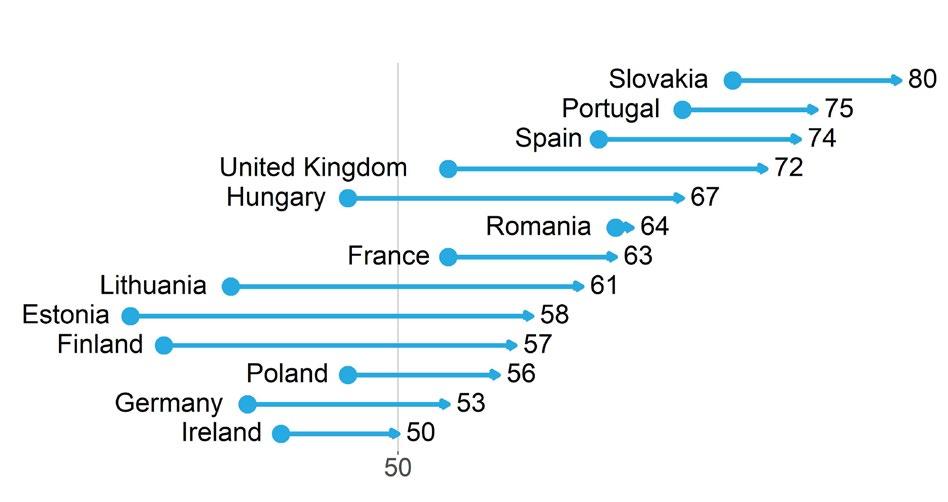
We also asked ALDE Party Vice President Dita Charanzová MEP for a short commentary to highlight what these answers mean in the wider European context.
Change from April to September 2022
“These results show that the European economy has been heavily affected by this crisis. Consumers are spending less, and businesses have more trouble in covering their daily costs. We need solutions that focus on the middle class and SMEs to make it through the crisis. It is our responsibility to come out stronger so that our citizens feel secure and European businesses can get out of survival mode and back to thriving again. We must bring a hopeful message that is backed by concrete policy proposals discussed on a European level to achieve this. We don’t need 27 different solutions, but a strong European coordinated approach to help households, businesses and investors.”

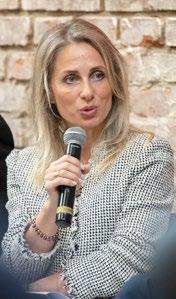
For more information on the ALDE Party survey project, get in touch with Max Sundermann (msundermann@aldeparty.eu)
This survey was conducted with Dynata, April Survey in EU-27 excl. CY, LU, MT and incl. CH, NO, UK with a sample size of 1,000 respondents, September survey in DE, EE, ES, FI, FR, HU, IE, LT, PL, PT, RO, SK, UK with sample size of 800 respondents.
HOW SHOULD THE GOVERNMENT REACT TO INFLATION CRISIS? % of the population selecting the option
In September, the Alliance Of Her supported a delegation to the 77th session of the United Nations General Assembly (UNGA) in New York City. During the visit, the delegation successfully made the case for more female political leadership and representation through meetings, events and activism.
In addition to a world-class political leadership academy, the Alliance Of Her supports a dynamic, influential and growing alumnae and allies network advocating for female political leadership and representation in Europe and beyond.
This year’s UNGA came at a time of significant global turmoil, with world leaders convening amidst crises such as the Russian invasion of Ukraine, protests in Iran against the regime’s treatment of women, increasing authoritarianism and climate change.
Over the course of several days, the Alliance Of Her delegation met with high-level political leaders, such as US Speaker of the House of Representatives Nancy Pelosi, spoke with US media and led two events – a high-level debate and a networking reception for partners and allies of the Alliance Of Her.
The high-level debate, entitled ‘Women’s Political Rights and Leadership – The key to tackling the biggest global challenges of our time’, included key interventions from Belgian Prime Minister Alexander De Croo, Ukraine Deputy Prime Minister Olha Stefanishyna, Lithuanian Speaker of the House Viktorija Čmilytė-Nielsen and UN Women Deputy Executive Director Anita Bhatia, among others.
The delegation, which included ALDE Party Vice Presidents Kira Rudik MP and Svenja Hahn MEP, Čmilytė-Nielsen, Irish Senator Erin McGreehan and Naša stranka party activist Jasmina Mršo, also participated in protests against the Russian invasion of Ukraine, as well as in several policy debates and events on the sidelines of UNGA.
The Alliance Of Her delegation to UNGA succeeded in increasing the profile of female political leadership on the global stage, sharing the importance of programmes such as the Alliance Of Her in shifting the agenda, and forging new connections with like-minded partners to create opportunities for future impact.
For more information on the Alliance Of Her, visit allianceofher.eu
The Alliance Of Her Academy continues to benefit from the support of partners FNF and ELF, as well as the European Parliament. All participants meet strict eligibility criteria, in addition to demonstrating clear leadership talent and ambition. Participants are also informed of the prohibition to run in an election campaign during the academy or up to 12 months after the termination of the programme. If this condition is not respected, participants will be required to cover costs independently.

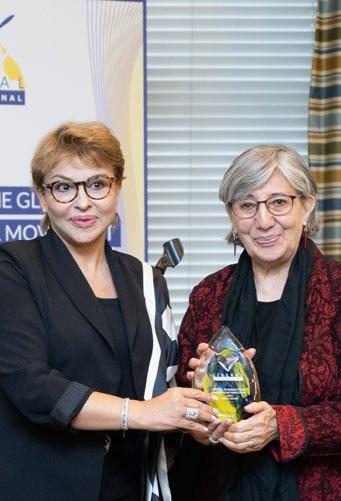
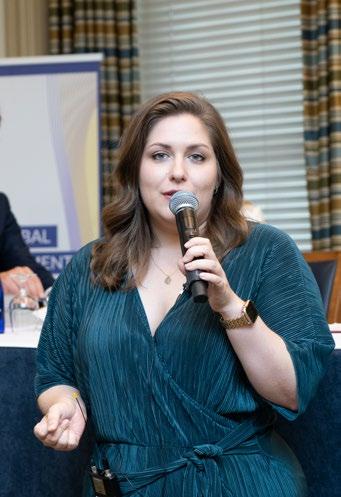
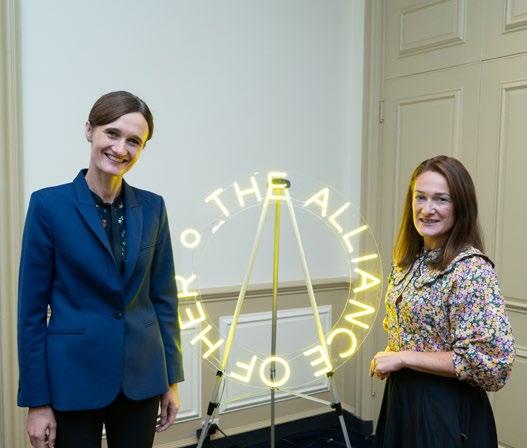
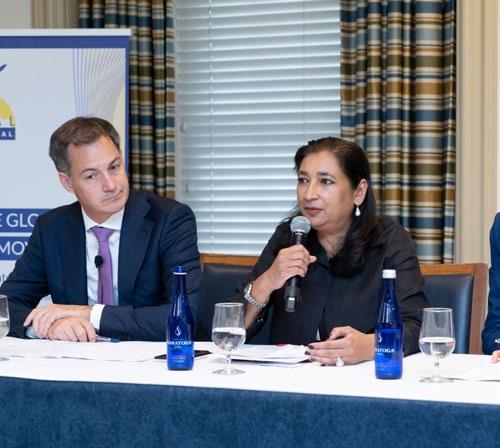
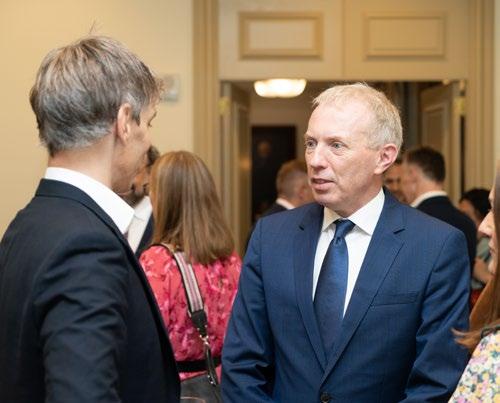
We all should be feminists, until the moment that the word disappears.
In 2022, ALDE Party ran campaigns to fight for citizens’ rights and freedoms - to decide over their bodies, love who they want to love, defend their countries from authoritarian aggressors and much more.
Through our campaigns, we invite the liberal community to take action and stand with us to defend our shared values, whether by signing a petition, sharing our posts on social media or donating to a cause.
Below you can find some examples of the campaigns we have run this year. Don’t miss out - be sure you sign up for our ACT Campaigns mailing list at aldeparty.eu/campaigns
Sanctions against Iran now: We demanded sanctions against Iranian officials that are repressing women and peaceful protestors

My Body, My Choice: We stood for women’s reproductive rights in the face of new policies to restrict or ban abortion in Europe and beyond

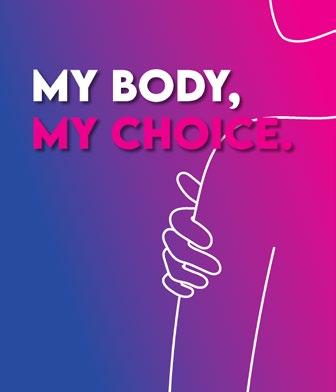
Ukraine needs you: We teamed up with the NGO Promote Ukraine to raise funds for Ukrainians fighting on the frontlines
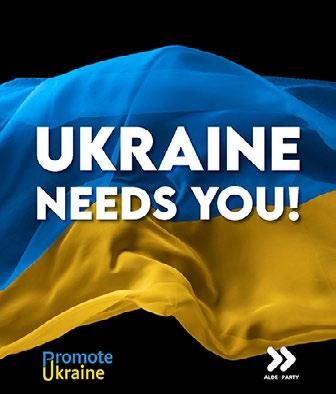
Liberals celebrate Pride every day: During Pride month, we continued our fight against discrimination, pushing for more diversity in politics and showing solidarity with the LGBTQIA+ community

Act now for the Future of Europe: We demanded the EU Council to implement the reforms citizens asked for throughout the Conference on the Future of Europe
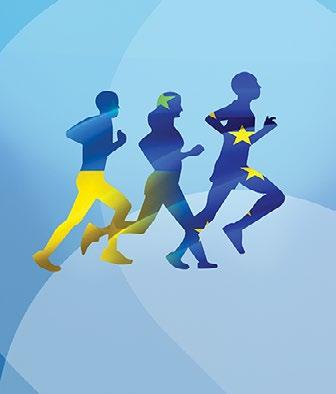


Run (or walk) for Ukraine: We put together a team of runners and walkers to participate in a virtual solidarity race to help the children of Ukraine
Boycott the Beijing Olympics: We stood up against China’s human rights violations and demanded EU Member States boycott the 2022 Beijing Winter Olympics
Love is Tasty: We celebrated all kinds of love and supported the LGBTQIA+ community on Valentine’s Day
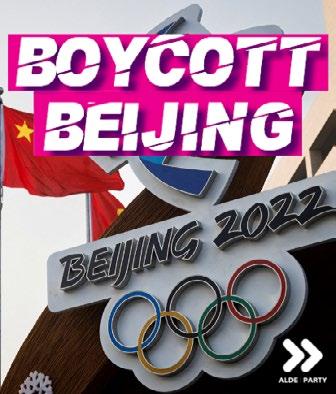
The European Union is going through a crisis of values. Values that are based on Rule of Law, and fundamental rights and freedoms, are at risk not only in Hungary and Poland but also elsewhere in the EU, writes European Parliament Vice-President, and leader of Progressive Slovakia Michal Šimečka.
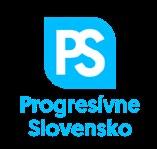
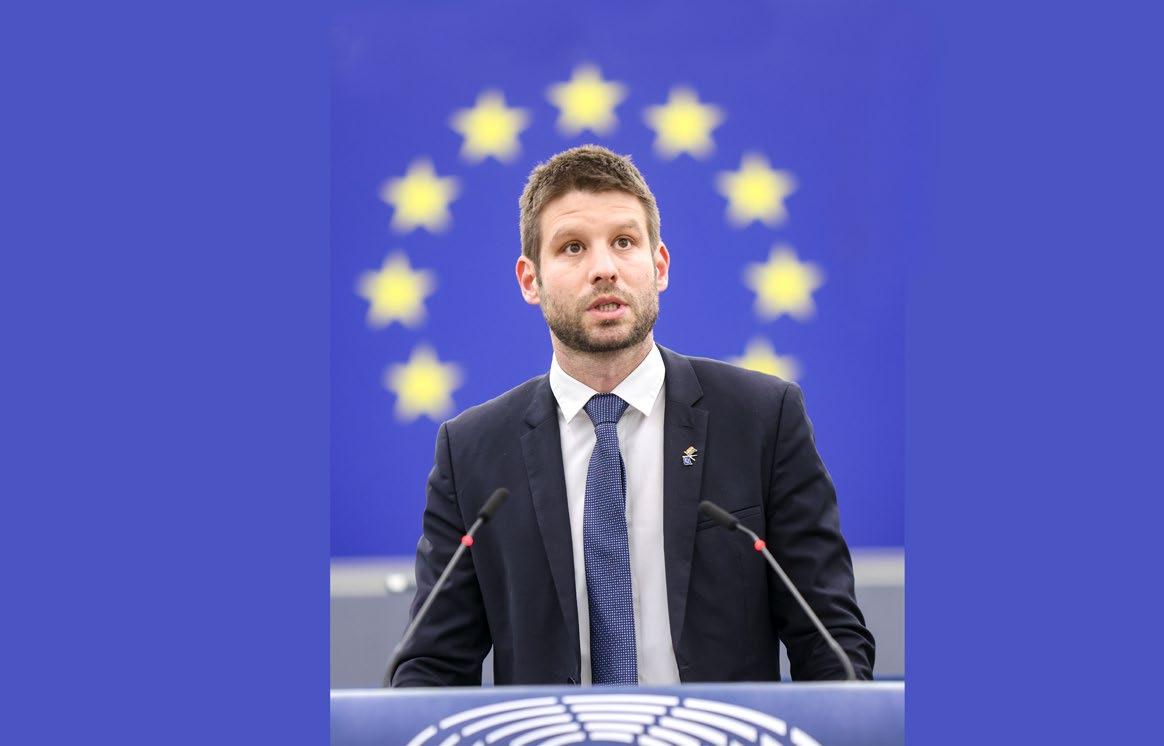
I come from Slovakia, a country where the Rule of Law has been frequently violated by a group of politicians who defend the interests of oligarchs. Ján Kuciak, a young investigative journalist, together with his fiancée Martina Kušnírová, paid with their lives for bringing to light corruption schemes with direct political links. While the political leadership has since been changed, the families of Jan and Martina are still waiting for justice, five years later.
Apart from the Rule of Law issues, crises such as the COVID-19 pandemic and Russia’s war on Ukraine have ravaged Europe. Our shared values have been put to test, once again, and the growing fear and despair of Europeans – caused by inflation and the energy crisis – are, consequently, misused by undemocratic leaders.
However, these crises demonstrate why the European community has existed for decades. We have always been stronger together, and thus must continue on this joint European path and act in unity. We must protect our values against those who promote autocracy over democracy, corruption over the Rule of Law and Russia over Europe.
Nowadays, we have an effective Rule of Law Conditionality Mechanism that allows sanctioning Member States if they violate the Rule of Law or democratic processes. This Mechanism consists of removing the control of European funds from governments misusing those funds to the detriment of their own as well as EU citizens. Indeed, these types of abuses influence the financial interests of the entire European Union.
However, for almost two years, this Mechanism remained in the drawer of the European Commission before eventually being triggered against the autocratic regime of Viktor Orbán in Hungary. I have no doubt on why the Commission activated the Conditionality Mechanism involving up to a third of the funds allocated to Hungary. To do that, the Commission must have found evidence of a systemic problem. Because, in today’s Hungary, the corruption and misuse of EU funds are, unfortunately, an integral part of the governing system.
This example should serve as a lesson to all of us: to those Member States, who might be tempted to disrespect our shared values, to the European institutions that might have been operating under ‘ostrich politics’ for a long time, but, also to all those countries who are hoping to join the European Union in future. The EU must act in time and effectively, while giving the Member States the space to repair the systemic defects.
Ultimately, one thing matters when it comes to European democracy: whether
our values-based project is still attractive to European – and global – citizens or not. We had a positive example earlier this year when Ukraine and Moldova expressed their hope to join the EU. But, if we want these candidate countries to demonstrate they respect our common values and to promote them as a condition for accession, we must also ensure that the same respect is guaranteed among all Member States. Only then will we be able to truly protect our common and shared European values.
“ We must protect our values against those who promote autocracy over democracy, corruption over the Rule of Law and Russia over Europe.”
For freedom and justice to prevail, the European community must stay united against the Russian threat and provide the necessary support to Ukraine, writes Viktorija Čmilytė-Nielsen, leader of the Liberal Movement and Speaker of the Lithuanian Seimas.
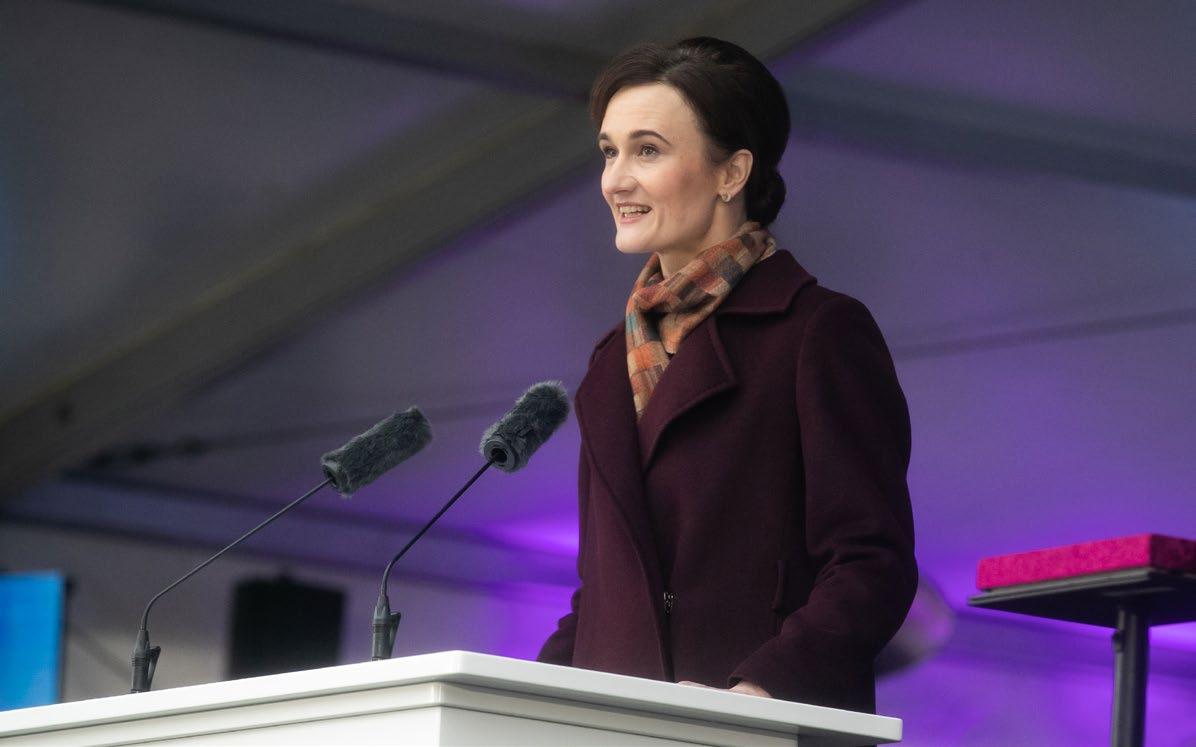
Russia’s large-scale invasion of Ukraine highlights the need to reflect on freedom as our shared, fundamental value. This is especially true for the liberal community, as freedom can be considered as the most important component of both liberal thought and liberal policy. Freedom is at the root of liberal democracy and cannot be separated from it.
In the times of war and pandemic, none of us knew what to expect and what our future would look like. But, together with non-governmental organisations, our community worked to improve the situation.
The mayors of our party were among the first ones in Lithuania to start actively gathering support for Ukraine. They took care of the first refugees, revised civil defence plans, appealed to fellow mayors from all over Lithuania and Europe, and ended partnerships with Russian cities that failed to turn away from the Kremlin regime.
It is no coincidence that the members of the Liberal Movement were deeply shocked by the attack on Ukraine’s freedom and its people. Horrible memories of the occupation and annexation of Lithuania are not that distant to us: only 32 years have
passed since the restoration of our independence. Therefore, people in Lithuania do not take freedom for granted.
Today, Ukraine faces its biggest challenge. Yet not only is the future of Ukraine at stake but freedom and solidarity across Europe. Therefore, thinking of the war as a regional crisis would have devastating consequences.
No other issue on the liberal agenda can prevail unless Ukraine’s freedom is defended. Russia’s actions are among the most recent and most dangerous examples of how quickly nationalism and fundamentalism can raise their heads. These are attacks directed against the very foundation of democracy. How will we be able to promote European values elsewhere in the world if we fail to defend them on our own continent?
For politicians in the Renew Europe Group, this is an opportunity to kick-start Europe’s renewal. The shock caused by the Russian invasion should be used to ensure that Europe is revitalised and renewed in terms of security, energy independence and economic independence.
We must admit that the EU’s policy towards Russia so far has failed. We need to recognise that we need a strategy to prepare for something that can become a long-lasting, strategic confrontation that requires serious change in both military and non-military components for containing and deterring Russia.
Most importantly, it is crucial to help Ukraine
now. The support must be diverse and comprehensive, including supplying modern weapons. There is nothing liberal in leaving the people who defend their freedom unarmed against the aggressor committing war crimes. The recent report of the Independent International Commission of Inquiry on Ukraine clearly states that, among other criminal acts, Russian troops have committed sexual crimes and acts of gender-based violence, and that there have been cases of rape, torture, killing and unlawful restraint of children.
We must therefore ensure, together with the international community, that those responsible for Russia’s crimes in Ukraine are brought to justice.
I believe that Ukraine’s struggle for freedom will lead the country to the European Union. Both the government and the people of Ukraine have demonstrated an undoubtable and heartfelt commitment to the European values, and therefore the country deserves all possible support on this path. Today, freedom is Ukraine and Ukraine is freedom.

liberalai.lt
‘Our member parties have the floor’ is a regular series in which we give the opportunity to ALDE members across Europe to share their perspectives. If you have suggestions on which member parties you would like to see featured next, please contact us at communication@aldeparty.eu
I then came across an ALDE Party stall at the 2018 LibDems Spring Conference and signed up. The first welcome email felt almost like coming home to a place where European and liberal values had an even more profound meaning.
What led you to become an active member of the Civil Liberties & Human Rights Working Group, and what are you working on right now?
What are your favourite parts of being an individual member, and why should others join too?


In 2021, the ALDE Party individual members programme (AIM) launched 11 Working Groups, which cover a range of topics from foreign affairs to gender equality, among others. We spoke with Wiebke Rueterjans, the Working Group coordinator for Civil Liberties & Human Rights. Originally from Germany, she is based in the United Kingdom.
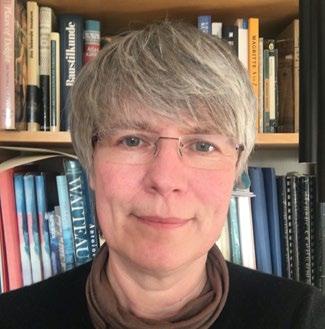
You have been an ALDE Party individual member since 2018. Why did you decide to join the programme?
After a lifetime of no political activity, I became a member of the British Liberal Democrats in 2016, five days after Brexit. I joined the LibDems because they shared my liberal and pro-European values, and I thought that adding my voice was the best hope to reverse Brexit.
After living with five years of uncertainty on whether my rights as an EU citizen in the UK would be guaranteed or not following Brexit, becoming an active member of the Working Group on Civil Liberties & Human Rights was not a difficult decision to make.
We started the work in the summer of 2021. As the group coordinator, I lead a diverse group of people from across Europe, who bring different skills and perspectives to the table. Recently, we have been working on a resolution proposal to extend the voting rights of EU citizens who live in an EU member state other than their country of origin. We feel that EU citizens should be able to vote in local and national elections in the EU member state they live.
As an individual member, I’m part of a membership-based structure which, through engagement, outreach, communication and activities, engages and brings together ordinary European citizens with liberal minds. As a working group coordinator, I get to connect, debate and discuss with liberals across Europe – I find this hugely important. Some of the issues we discuss find their way into formal resolution proposals for the ALDE Congress. It’s also a benefit that being an individual member doesn’t require a lot of time so it allows having a busy work and family life. It also allows being a part of the ALDE Party and staying in touch with European politics as an ordinary citizen.
For more information on the AIM programme, visit aldeparty.eu

In October, Swedish MEP Abir Al-Sahlani made waves in the European Parliament with bold action to support the women of Iran. “Women. Life. Freedom.” she said on the plenary floor, before cutting off her hair in solidarity with anti-government demonstrations, ignited by the death of 22-year-old Mahsa Amini in Iranian “morality police” custody earlier this year.

Hadja Lahbib became Minister of Foreign and European Affairs, Foreign Trade and Federal Cultural Institutions of Belgium in July. She is a seasoned journalist and director of several documentaries, a wellknown figure on the small screen and, more recently, head of the commission supporting Brussels as a European Capital of Culture in 2030.
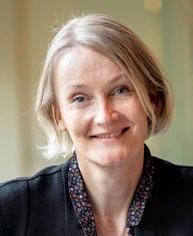

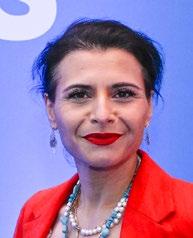
Founded in 2021, the Rainbow Platform champions the idea of the elevation of LGBTQIA+ liberal voices in politics. The platform highlights LGBTQIA+ role models to inspire political engagement within the community, create positive change and improve representation across Europe. Since their founding, ALDE Party Vice-Presidents Sal Brinton and Dániel Berg have joined in as Programme Ambassadors for diversity and equality.

Estonian Prime Minister Kaja Kallas has taken Europe – and the internet – by storm this year, with bold action in the face of Russia’s invasion of Ukraine. Raised in the shadow of Soviet occupation, Kallas is outspoken about the realities of Putin’s war. In September, this earned her a spot on the TIME100 Next list for her extraordinary efforts to shape our world and future.

Ivica Puljak, leader of Centar in Croatia, made history this year by becoming the first mayor to be re-elected in the country’s second largest city, Split. A physicist by training, Puljak led one of the groups of scientists that found the Higgs boson particle and is active worldwide in the promotion of scientific discovery.
Lisa van Ginneken is the first transgender person elected to the Dutch Parliament. In 2021, she received the Pride Award in the category ‘Well-known LGBTI+ Hero’. She is an IT professional by training and covers the portfolios ICT and privacy, digital government and intelligence services in parliament, where she works to guarantee that technology does not discriminate.
These profiles are an editor’s pick of some our liberal movers and shakers. Have a great profile in mind?
Feel free to submit your proposal at communication@aldeparty.eu ahead of the next issue to be published by spring 2023.
To view all our liberal profiles, visit www.aldeparty.eu/leadership
@AbirAlsahlani @hadjalahbib @RainbowP_EU The Rainbow PlatformRue d’Idalie 11 - Box 2 1050 Brussels, Belgium
Tel: +32 2 237 01 40 Fax: +32 2 231 19 07 info@aldeparty.eu www.aldeparty.eu
ALDE Party - Produced: November 2022 - With the support of the European Parliament. The sole liability rests with the author; the European Parliament is not responsible for any use that may be made of the information contained therein
